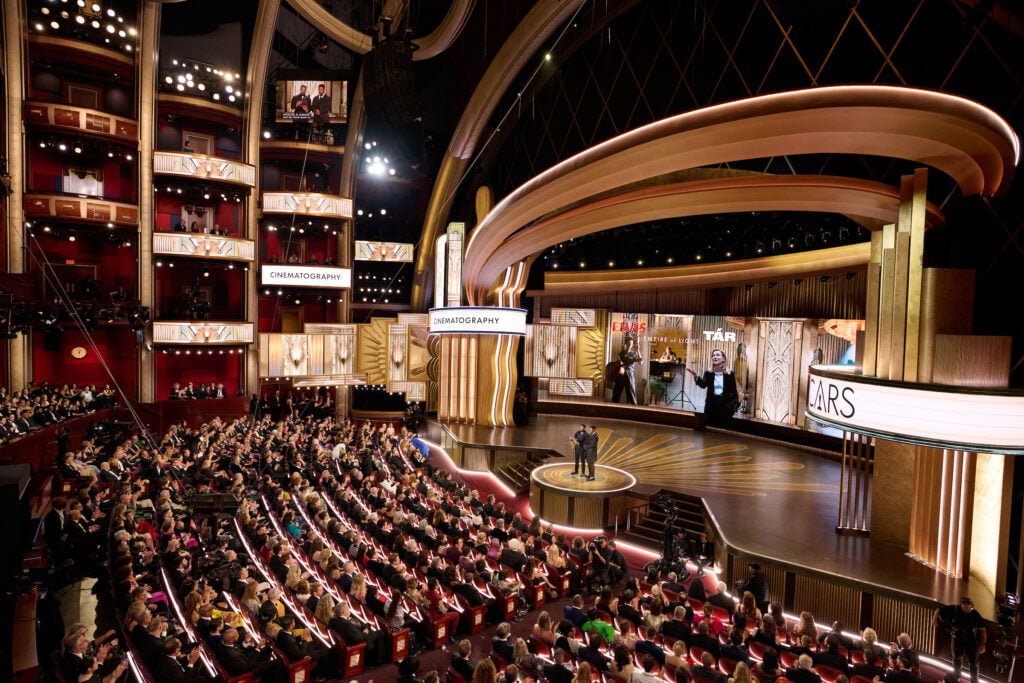Innovation happens when teams stay curious. That’s why at DAIN Studios our people have plenty of chances to learn and adapt their skills across a variety of projects.
Internal assignments are crucial in this regard. They serve as testing grounds for novel ideas—shaping the future course of our thinking. With this in mind, we wanted to highlight Máté Váradi’s Oscar prediction project. It not only forecasts the outcome of the Academy Awards, but also offers insights into the key ingredients behind an Oscar win.
As a data scientist in our team, Máté has collaborated on a variety of client projects at DAIN Studios. These include creating ETA predictions for a logistics company and AB testing to evaluate the effectiveness of a new product rollout.
Previously, we’ve discussed the workings of the Oscars prediction model. So, in this interview we wanted Máté to explain his thoughts on how successful the model was at predicting the 2023 Oscars.

How would you describe the performance of your 2023 Oscars prediction model?
Máté Váradi: Overall, the model was able to predict 4 out of 6 awards which isn’t bad. I had some doubts about the model’s prediction for Best Picture. The model has been wrong several times in this category. In the end though it turned out to be right, so I’m happy about that. There was an intense competition for all of the acting votes. In these categories the model was able to predict two out of 4 awards.
Q: The model suggested that Jamie Lee Curtis wouldn’t win the Best Supporting Actress Oscar partly because it was her first nomination. In the end, the actress went on to win. How do you explain this? Are there any changes you would make to the model next year in light of this course of events?
Máté Váradi: Indeed, Angela Bassett already had a nomination and so she seemed to be a more likely winner. Jamie Lee Curtis, however, starred in the movie that won Best Picture (Everything Everywhere All at Once), while Angela Bassett starred in a Marvel movie. Jamie Lee Curties is also the better known actress out of the two, so I wasn’t that surprised she ended up winning, despite the model’s prediction.
Q: The model predicted Cate Blanchett would win Best Actress. On March 13 the award went to Michelle Yeoh. With this in mind, are you going to re-configure the importance of genre or any other variable in your 2024 model?
Máté Váradi: The model is re-trained every year so it can learn from the previous year’s mistakes and reweigh the relative importance of the features (in this case the success probability for comedies versus music-related dramas). However, the evidence against comedies is quite strong, so I think that my model would still favor musical dramas over comedies in the future.
Q: Have you thought about increasing your datasets in any way?
Máté Váradi: I have thought about producing predictions for the two screenplay categories. By following the Oscars for a few years I’ve noticed that popular acclaim seems to be an important factor for the best original Screenplay category, and it’s often given to the movie that I liked the most that year (Green Book, Promising Young Woman and Parasite from the past few years). I’d be curious to see what else matters for this category, and how easily it can be predicted.
My main idea to improve the model is actually to decrease the size of the training dataset, or to place a lower weight on older movies.
My dataset goes back to 1960, but so much has changed since then—streaming sites are producing Oscar-nominated movies, superhero flicks are being nominated for non-technical awards, and foreign language films are actually being watched by the academy.
Q: Does the model have wider applications? Could it be used to predict awards in other professions for example?
Máté Váradi: Exactly the same model cannot be used to predict other awards, such as the Grammy Awards, the Nobel Prize or the Ballon D’Or, but a similar model could. Our Oscars model can give us some ideas on what features might matter for receiving awards in general—for example age, previous nominations and previous wins, and critical and popular acclaim.
Q: Is there any other learning that you took from your 2023 Oscar prediction model?
Máté Váradi: I was surprised to witness the clean sweep from Everything Everywhere All at Once this year (winning 7 out of 11 awards). Perhaps we’ll see more of this kind of movie at the Oscars in the future—lighthearted, action-packed, and funny.